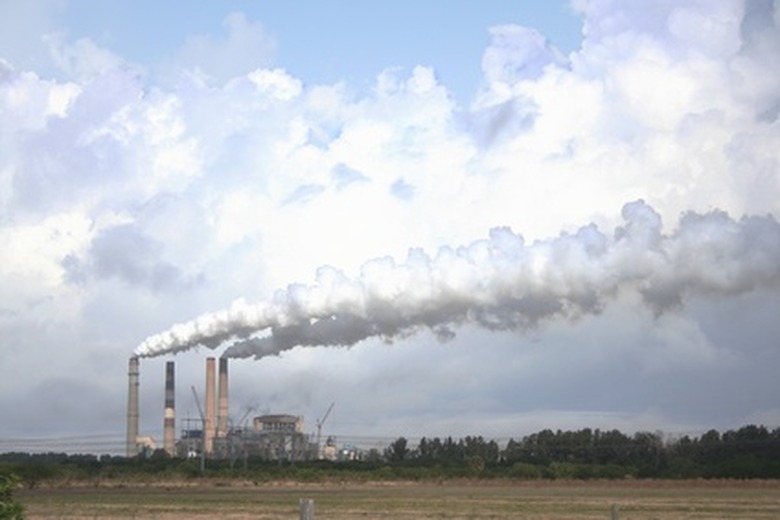How To Prevent Chemical Pollution
Chemical pollution is harmful to humans, animals and the environment. Acid rain, ozone depletion and greenhouse gases can be limited by taking the necessary steps in your own household to prevent such pollution. Nearly everything humans do affects air, water and soil quality. The goal of preventing chemical pollution can be achieved, but requires public education, a change in mindset and alteration of longtime, ingrained operating procedures.
At Home
Step 1
Use products that have been produced in a way that has reduced waste. Buy recycled products. Buy durable products that use the least packaging possible. Buy only as much chemical product as you need.
Step 2
Use household chemicals and products before they go bad or reach their expiration date. Give away things such as paint and chemicals to people who will use them. Recycle, reuse or donate liquids from automobiles. Do not pour them down the drain or throw them away in the regular trash.
Step 3
Limit the use of your cars and motor vehicles. Riding a bike or taking public transportation will help reduce the amount of chemicals put into the air.
Step 4
Add insulation to your walls so that your house only uses the energy and heat it needs. Caulk windows and doors. Excess heat and energy released into the atmosphere has negative effects for the environment. Also, make certain your septic tank is adequately lined to prevent leakage.
Step 5
Use your fruit and vegetable waste as mulch or compost instead of chemical compost. Try non-chemical herbicides and pesticides on your yard.
On the Job
Step 1
Keep your work area clean and well labeled if your company uses chemicals. Keep containers well sealed and have them inspected to make sure there is no contamination and no leaks. The Delaware Department of Natural Resources says, "Keep waste streams separate for re-use, recycling or treatment. Keep nonhazardous materials from becoming contaminated."
Step 2
Work to see that your company becomes involved in the industrial-waste exchange program. Use recycled and non-toxic substances whenever possible. Invest more in hazardous-waste programs. Use energy-efficient lighting and low-flow toilets.
Step 3
Create incentives for employees to car pool and manage the company's vehicle use. Reduce the use of motor vehicles whenever possible.
Step 4
Make sure employees are given directions for working with specific chemicals. Run frequent tests and offer classes and information sessions to keep your workers up to date on proper movement, storage and disposal techniques for chemicals.
Step 5
Use non-toxic and non-chemical solutions and products whenever possible.
TL;DR (Too Long; Didn't Read)
Substitute as many natural materials you can for chemical materials, such as using manure and compost instead of chemical fertilizers.
Warning
Always take precautions when using chemicals.
Never mix chemicals without proper knowledge of the chemicals.
Cite This Article
MLA
Huebsch, Alex. "How To Prevent Chemical Pollution" sciencing.com, https://www.sciencing.com/prevent-chemical-pollution-7637697/. 22 November 2019.
APA
Huebsch, Alex. (2019, November 22). How To Prevent Chemical Pollution. sciencing.com. Retrieved from https://www.sciencing.com/prevent-chemical-pollution-7637697/
Chicago
Huebsch, Alex. How To Prevent Chemical Pollution last modified August 30, 2022. https://www.sciencing.com/prevent-chemical-pollution-7637697/
